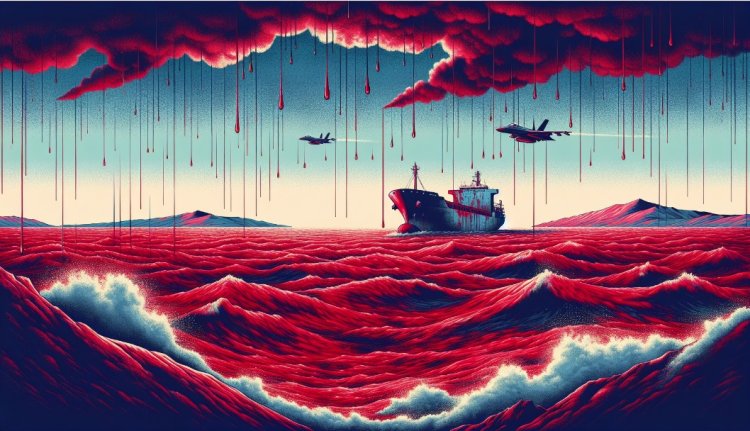Tensions in the Red Sea: Analyzing the Situation and Potential Escalation
Rising tensions in the Red Sea raise fears of escalation. Dive into the complex geopolitical puzzle, analyzing key players, flashpoints, and potential consequences.

The Beginning
Tense situations are building up in the Red Sea right now, which is making people worry that the West Asia War could get worse. To learn more about this subject, we talk to Edward P. Joseph, who is a foreign policy expert and senior fellow at the Johns Hopkins University School of Advanced International Studies.
How to Look at the Situation
Before we can say for sure if there is a risk of things getting worse, we need to look at the effects of the recent strikes by the US, UK, and other countries in the area. A resolution of the UN Security Council denounced the Houthi rebels' attacks on ships in the Red Sea. These strikes were a direct reaction to those attacks.
It's important to note that countries like Russia decided to let the resolution pass, even though they had some initial concerns. They knew how important it was to condemn these attacks on ships in the Red Sea. Also, it's important to note that the US, UK, and their allies did not immediately launch a military reaction to the Houthi seizure of a ship in the Red Sea. But tactical hits were made against the drones that were coming in.
Possible Escalation and the Houthis' Strength
Officials from the Houthi group have called out to Washington and said they are ready for a full-on war. But it's important to see how the strikes have affected the Houthi fighters and how strong they are before talking about any further escalation. Our knowledge comes from past events, like the Saudi-led war in Yemen, where the Houthi rebels fought back against bombings.
The Saudi-led alliance has used a lot of air power against the Houthi rebels, but they have been able to hold out. So, it is very important to watch how the Houthi rebels react, especially how Iran reacts, since Iran supports and funds them. Iran should really think about whether it wants the Houthis, who are acting as a proxy for Iran, to make the conflict worse between Iran and the US, UK, and their allies in the area.
It's important to think about what could go wrong for Iran. If things get worse, they might upset the balance of power in Yemen, which would be bad for Iran. Iran must also be worried about things getting worse, which could hurt its own interests and its ability to have an impact in the Middle East.
In conclusion
People are worried that the West Asia War could get worse because of the fighting in the Red Sea. Not yet, though. We need to see how the first hits affect the Houthi rebels before we come to any conclusions. As a supporter of the Houthis, Iran's reaction will be very important in deciding what will happen next.



 admin
admin 










